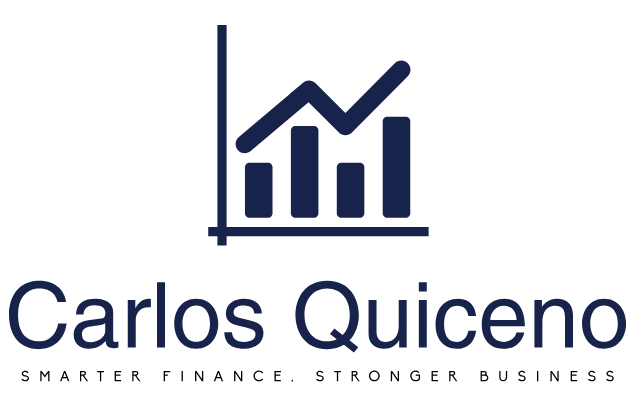🌐 The AWS Outage and Its Ripple Effect on the U.S. Digital Economy
On October 20, 2025, Amazon Web Services (AWS) — one of the largest and most critical pillars of global digital infrastructure — suffered a major service outage, impacting thousands of platforms, applications, and business operations across the United States and worldwide.
This outage didn’t just affect tech companies. It disrupted financial institutions, logistics networks, e-commerce platforms, and consumer apps, underscoring a growing systemic risk: too much of the digital economy depends on too few providers.
AWS, a subsidiary of Amazon.com Inc., holds approximately 32% of the global cloud computing market. This means that a technical failure in its infrastructure can trigger widespread operational and financial consequences, even if the disruption lasts only a few hours.
📉 What Happened
The outage originated in AWS’s US-EAST-1 region (Virginia), one of its main hubs. According to official statements, the issue was caused by a DNS and networking failure, which left many cloud-based services inaccessible for hours.
Among the affected platforms were major consumer apps like Snapchat, Venmo, and Fortnite, as well as e-commerce sites, financial platforms, and Amazon’s own internal systems. While AWS reported that the incident was mitigated later in the day, many companies experienced degraded performance and errors well into the afternoon.
🏦 Immediate Economic Impact
At first glance, a few hours of downtime may seem minor. In reality, the economic cost is significant. Early analyst estimates point to billions of dollars in lost revenue, delayed transactions, and extra operational costs.
Some concrete examples:
- E-commerce: For large marketplaces, each minute of downtime can translate into millions of dollars in lost sales.
- Fintech and banking: When payment platforms are down, transaction flows slow or stop, affecting both companies and consumers.
- Logistics and manufacturing: Many supply chains rely on cloud infrastructure to coordinate operations. An outage can halt deliveries and production schedules.
In short, the AWS outage didn’t just affect tech companies — it disrupted key pillars of the broader economy.
⚠️ A Systemic Risk: Too Much Dependency on a Few Providers
This incident highlights the fragility of today’s digital ecosystem, which depends on a handful of cloud giants. In the U.S., AWS, Microsoft Azure, and Google Cloud dominate the market. A failure in any of these can ripple through multiple sectors simultaneously.
This kind of “single point of failure” has long been flagged by cybersecurity experts and financial regulators. Concentrating so much infrastructure in a few hands means any technical disruption can act as a domino effect, impacting everything from startups to major banks.
The situation is similar to a massive power outage: even if only one system fails, modern interconnectivity ensures that the economic impact spreads quickly.
📊 Market Confidence and the Tech Sector
Cloud computing is a cornerstone of U.S. economic growth, driving innovation, productivity, and job creation. However, incidents like this can shake investor confidence and influence market behavior in several ways:
- Investor uncertainty: A visible outage in the largest cloud provider increases perceived risk and can affect stock valuations of companies highly dependent on the cloud.
- Corporate caution: Businesses may temporarily slow investments in cloud migration or expansion until they’re reassured about reliability and redundancy.
- Regulatory scrutiny: Large-scale outages tend to attract the attention of regulators, leading to calls for stronger oversight of critical digital infrastructure.
Tech companies will likely respond by strengthening their redundancy strategies and communications with customers and shareholders to maintain confidence.
📈 Broader Economic Implications
Beyond the immediate financial hit, outages like this can raise the structural cost of doing business in the digital economy. Companies are likely to invest more in redundancy, multi-cloud strategies, and business continuity planning — all of which increase operational expenses.
Consumer and business confidence may also be impacted. If users perceive digital services as unreliable, adoption rates can slow, potentially affecting tech sector growth and job creation.
For an economy like the U.S., which is increasingly digital, ensuring technological resilience is no longer optional — it’s a strategic economic imperative.
🧭 Financial and Strategic Lessons
From a financial management perspective, the AWS outage is a clear reminder of the need to integrate technology risk into financial planning and forecasting. Businesses should:
- Assess their technological exposure: Understand what percentage of operations depends on a single cloud provider.
- Build financial contingency plans: Even a single day of downtime can lead to major losses. Financial buffers and insurance are critical.
- Diversify operational risks: Adopting multi-cloud or hybrid cloud strategies can help reduce vulnerability.
- Monitor investment exposure: Companies heavily tied to cloud infrastructure may face increased market volatility after such incidents.
For investors, events like this also highlight the importance of analyzing operational risk — not just financial statements — when evaluating companies.
🏁 Conclusion
The AWS outage of October 20, 2025 is a powerful reminder of how interconnected and fragile the digital economy can be. While the disruption was eventually resolved, its ripple effects across industries — from finance to logistics — are real.
As the global economy becomes ever more reliant on cloud infrastructure, resilience and diversification will be just as important as technological innovation. Companies, investors, and regulators must work together to strengthen the backbone of the digital economy and reduce the systemic risk of depending on a handful of providers.
For businesses and financial professionals, this is not just a tech issue — it’s a strategic financial consideration that can affect revenues, valuations, and long-term stability.
✍️ Article written by the team at Carlos Quiceno Financial Services — experts in financial strategy, bookkeeping, and business management for a rapidly evolving digital economy.








